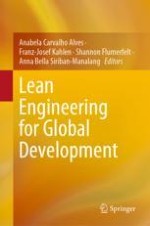2019 | OriginalPaper | Buchkapitel
The Lean-Green BOPSE Indicator to Assess Efficiency and Sustainability
verfasst von : M. Florentina Abreu, Anabela Carvalho Alves, Francisco Moreira
Erschienen in: Lean Engineering for Global Development
Aktivieren Sie unsere intelligente Suche, um passende Fachinhalte oder Patente zu finden.
Wählen Sie Textabschnitte aus um mit Künstlicher Intelligenz passenden Patente zu finden. powered by
Markieren Sie Textabschnitte, um KI-gestützt weitere passende Inhalte zu finden. powered by
